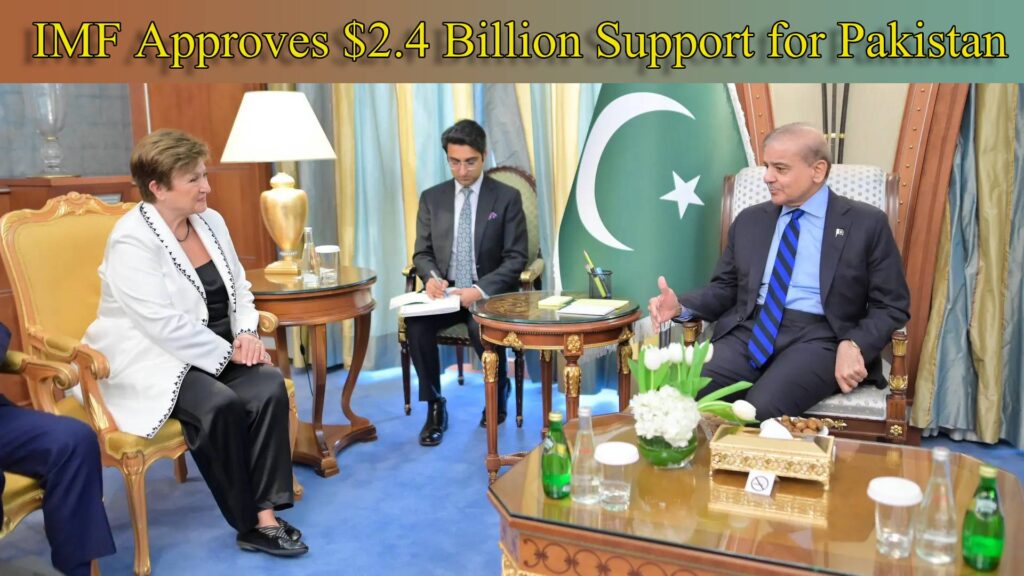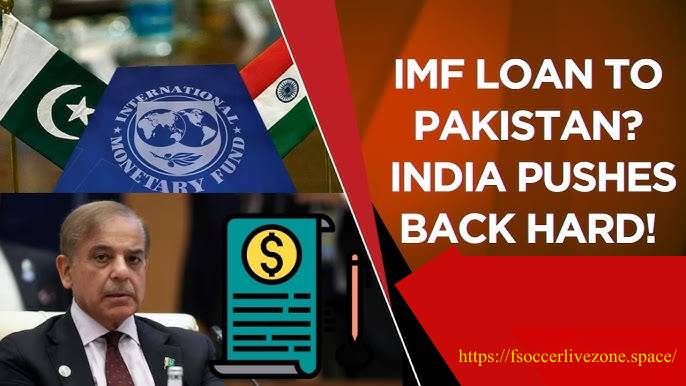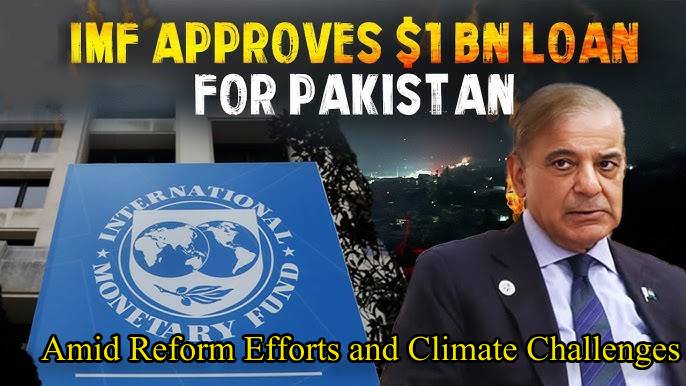In a critical development for Pakistan’s struggling economy, the Executive Board of the International Monetary Fund (IMF) has approved a financial assistance package totaling $2.4 billion. The disbursement comes under two key frameworks: the Extended Fund Facility (EFF) and the Resilience and Sustainability Facility (RSF). The approval signals both confidence and caution as Pakistan attempts to revive its economy while managing the impacts of climate change.
Breakdown of the IMF Support Package
The IMF’s Executive Board met on May 9, 2025, to evaluate Pakistan’s economic progress and future outlook. Following this meeting, the IMF announced:
- Completion of the first review under the Extended Fund Facility (EFF), enabling an immediate disbursement of $1 billion.
- Approval of a new arrangement under the Resilience and Sustainability Facility (RSF), unlocking $1.4 billion to support climate-related resilience.
This brings total disbursements under the EFF arrangement to approximately $2.1 billion, while the RSF program opens a fresh window of opportunity for Pakistan to combat the growing risks posed by climate change and natural disasters.
Understanding the Two Programmes
1. Extended Fund Facility (EFF)
The EFF is designed to support countries that face prolonged balance of payment issues due to structural economic weaknesses. Pakistan’s economy has long struggled with inflation, a depreciating currency, fiscal deficits, and declining foreign reserves. Under the EFF:
- Pakistan is expected to implement revenue-enhancing reforms.
- Structural adjustments will target energy sector losses, public enterprise reforms, and transparency in expenditures.
- The IMF will monitor Pakistan’s commitment to fiscal discipline and monetary stability.

2. Resilience and Sustainability Facility (RSF)
The RSF is a newer framework focused on helping low and middle-income countries cope with climate-related vulnerabilities. For Pakistan:
- The RSF provides $1.4 billion to fund climate adaptation infrastructure, green energy projects, and disaster resilience mechanisms.
- It aims to reduce the economic damage caused by floods, droughts, and extreme weather events—threats that have become more frequent in Pakistan due to climate change.
Economic Background and Pakistan’s Challenges
Pakistan has been in a dire economic situation for several years. The economy has faced:
- Ballooning external debt.
- Persistent trade deficits.
- A sliding rupee, reaching record lows against the dollar.
- High inflation, crossing double digits for months.
- Energy shortages impacting industrial output.
- Loss of investor confidence and a shrinking foreign reserve base.
The IMF support, while welcome, is conditional. It requires strict adherence to reform agendas, including tightening of subsidies, market liberalization, and improved governance.
India Raises Concerns During IMF Meeting
During the IMF board meeting, India voiced serious concerns about the effectiveness of IMF programs in Pakistan. According to a press statement from the Ministry of Finance of India, the Indian delegation raised the following points:
- Pakistan’s poor historical track record in implementing IMF reforms.
- Fears of potential misuse of IMF funds, particularly related to state-sponsored cross-border terrorism.
- Lack of transparency in the management of external debt and financial aid.
India emphasized that international financial support should be conditioned upon strict accountability, effective use of funds, and elimination of activities that destabilize regional peace.
IMF’s Assurance on Fund Usage
In response to these concerns, the IMF reaffirmed that:
- Pakistan must adhere to performance benchmarks under the EFF.
- The RSF funds will be released in tranches based on compliance with climate resilience milestones.
- IMF experts will continue conducting on-ground assessments and data verification to prevent misuse or redirection of funds.
The IMF has also urged Pakistan to enhance anti-money laundering measures, ensure debt transparency, and engage in good-faith discussions with creditors and stakeholders.
Pakistan’s Response to IMF Approval
The Government of Pakistan welcomed the IMF decision, stating that the support package is a “lifeline” for the country’s economy. Finance Minister Muhammad Aurangzeb noted:
“This IMF assistance will strengthen our macroeconomic stability, support economic reforms, and enable us to invest in critical areas such as climate resilience, energy security, and social safety nets.”
He further committed to full cooperation with IMF review teams and emphasized the importance of public trust through financial transparency and anti-corruption measures.

Reform Commitments by Pakistan
Under the IMF conditions, Pakistan has pledged to:
- Increase tax revenues by broadening the tax base and digitizing the tax system.
- Rationalize subsidies, especially in the energy and fertilizer sectors.
- Privatize loss-making state-owned enterprises (SOEs).
- Reform the power sector to reduce circular debt and improve bill recovery.
- Improve public financial management and budget transparency.
The Pakistani central bank, SBP (State Bank of Pakistan), is also expected to continue its tight monetary stance to curb inflation and stabilize the rupee.
Climate Focus Under the RSF
Pakistan is one of the most climate-vulnerable countries in the world, having witnessed devastating floods in recent years that displaced millions and caused billions in damages. The RSF support will enable Pakistan to:
- Build flood-resilient infrastructure.
- Expand clean energy projects, such as solar and wind.
- Enhance early warning systems and disaster preparedness.
- Promote climate-smart agriculture and water conservation.
The IMF emphasized that investing in climate resilience is not just environmentally necessary but also economically beneficial, reducing future losses and supporting sustainable development.
Public Sentiment and Political Implications
Public reactions in Pakistan have been mixed. While many view the IMF deal as a necessary intervention, others fear that austerity measures could lead to:
- Higher utility prices.
- Increased taxation on basic goods.
- Cuts in government subsidies, affecting low-income families.
Opposition parties have criticized the government for excessive reliance on international lenders and failing to pursue domestic reform independently.
Conclusion: A Turning Point or a Temporary Relief?
The IMF’s $2.4 billion support for Pakistan is a significant step toward stabilizing an economy that has teetered on the brink of default. However, this assistance comes with clear expectations and monitoring mechanisms. Success will depend on Pakistan’s political will, institutional reforms, and ability to deliver tangible results in both economic stabilization and climate resilience.
With rising scrutiny from regional powers like India and global financial observers, Pakistan faces the dual challenge of restoring economic health while ensuring that international trust and funding are not squandered. The next few months will be critical in determining whether this new phase of IMF support marks a genuine turning point or merely a temporary relief in a prolonged economic crisis.





